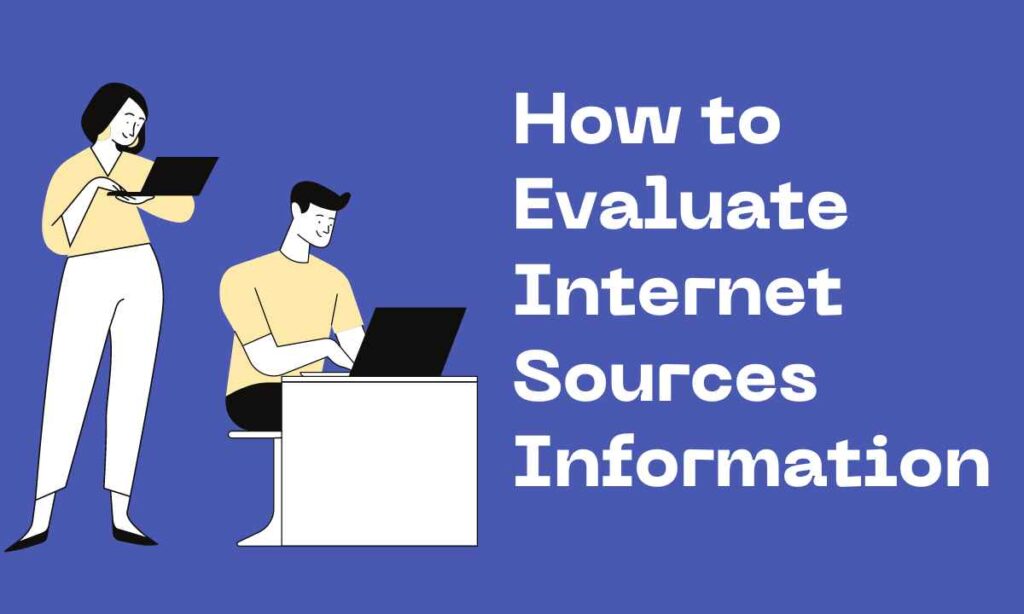Evaluating the information that you find as a result of an Internet search for authenticity and reliability is very important. The Internet is a large source of information, it is your responsibility to make sure that you are using genuine and reliable information. How to do so? Well, there are several criteria that can be used in the evaluation of Internet Sources which involve currency, relevance, accuracy, authority as well as purpose. Let’s discuss these criteria in more detail.
Criteria for Evaluating Internet Sources
- Currency: look for information that is up to date and relevant to your research topic the timeliness of the information is an important factor to consider when evaluating Internet sources Search Or Type Web Address, if the information is outdated it may not be accurate or reliable in the current scenario anymore.
- Relevance: you should look for information that is relevant to your research topic and bolsters your research questions. The importance of the information you need is a very significant factor to consider.
- Authority: look for information from reputable and reliable sources, information found on academic journals or government websites as well as professional organisations is bound to be much more reliable than information found on unauthenticated and non-peer-reviewed blogs and articles found on the Internet. Considering the credentials of the author is also important.
- Accuracy: information which is supported by evidence, such as primary research or reviewed by experts in the field is highly likely to be more reliable and truthful. The correctness of the content is a very important factor to consider.
- Purpose: the reason for the existence of the information is yet another important factor. It is recommended to look for information that is unbiased and objective contrary to information that is designed as promotional schemes or to support a particular viewpoint.
Tips for Evaluating Internet Sources
You can easily with the help of some tips make sure that you are using authentic information which you can rely on.
- Rely on information from known reputable sources such as academic journals, professional organizations and government websites.
- Check if the author has relevant credentials as an expert in the field.
- Preferred information which is backed up by evidence and has been a peer reviewed are reviewed by experts in the field.
- Make sure that the information you use is objective and unbiased
- Make sure that you’re not obsolete information and that it is up to date and relevant.
- Do not rely on just one source for your information and cross check your information from multiple sources to make sure that it is accurate.
Conclusion
When conducting research or before believing anything and everything you read on the Internet it is important that you evaluate that information. By using the above mentioned criteria of currency, relevance, authority, accuracy and purpose and by following the tips mentioned above you can evaluate your Internet sources to ensure that you are using authentic and accurate information. By using carefully evaluated information you can make sure that your research is also reliable.
